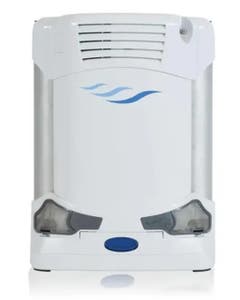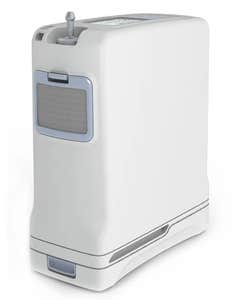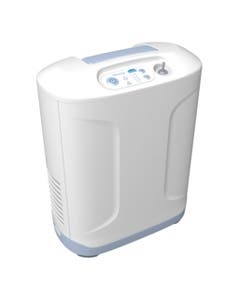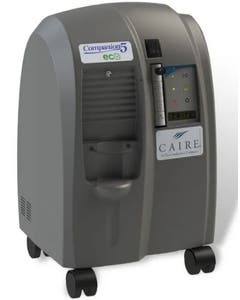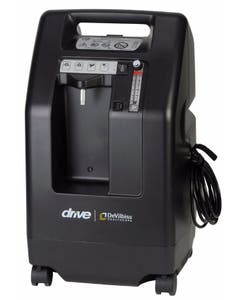

Some people with breathing problems or respiratory conditions like COPD may avoid physical activity because it makes them feel short of breath. But avoiding physical activity might reduce your lung function even more. Managing your COPD doesn’t have to mean living a sedentary life. Some physical activities like a brisk walk every day can help improve breathing and make you feel better without leaving you short of breath. Check with your doctor about adding some exercise, like walking, to your routine.
Benefits Of Walking for COPD and Shortness of Breath
Improves Health
Brisk walks can improve your overall health while living with COPD. Walking raises your energy level, improves muscle strength, and can also help the way your body uses oxygen. Essentially you are helping your oxygen saturation level with a good walk. While COPD may also leave you short of breath, you might discover that your walks reduce those instances, so that you may not need your supplemental oxygen as much. You may also find that a regular walk every day also helps your sleep at night. Too much sitting can leave you restless. Even just a little exercise helps you sleep peacefully.
Improves Immunity
The immune system is a complex network of cells, tissues, and organs. Together they help defend your body against infections and diseases. Substances harmful or foreign to the body, germs, like a virus, are called antigens. Your immune system’s response to an antigen is to make antibodies — proteins that work to attack, weaken, and destroy antigens.
A regular walk can boost your immune system. Walking can benefit your immune system by helping immune cells to perform effectively — increasing blood flow, reducing stress and inflammation, and strengthening antibodies. Getting your blood circulating with a brisk walk helps the white blood cells move freely about the body to fight disease.
Improves Lung Capacity
A sedentary lifestyle with COPD reduces lung function and capacity. Many patients become dependent on their supplemental oxygen which further weakens lung performance. Your lungs begin to adapt to lower oxygen demand so that even the slightest physical activity leads to shortness of breath.
Walking is a moderate physical activity that can help the lungs reach more capacity. In time, breathing can become easier as the lungs experience a greater oxygen demand. Eventually, you may be able to pass on your oxygen concentrator occasionally as your lungs will have the strength to function effectively on their own.
Reduces Weight
One of the healthy benefits of moderate exercise like walking is that it can help you lose weight. Sitting allows your body to put on extra weight, which isn’t healthy. Even for COPD patients, obesity can reduce lung function, making many overweight patients dependent on supplemental oxygen to breathe normally.
Weight loss can reduce the stress on lungs and allow for healthier breathing. Reduced body weight also allows energy levels to rise so you can engage in many activities without becoming winded.
While walking may only be a moderate exercise for weight loss, it can still help keep off unwanted pounds.
Reduces Blood Pressure
High blood pressure can contribute to heart disease and is affected by an individual's physical activity level and lifestyle habits. Walking can be a relatively easy and affordable way to incorporate lifestyle changes and potentially lower blood pressure. This is especially true for COPD patients who limit physical activity due to their respiratory condition and as a result, also have high blood pressure.
Exercise lowers blood pressure by reducing blood vessel stiffness so blood can flow more easily. The effects of exercise are most noticeable during and immediately after a brisk walk. Lowered blood pressure can be most significant right after you finish walking.
Reduces Stress and Anxiety
Stress and anxiety play a major role in healthy breathing. Stress causes the airway to constrict and makes breathing more labored. Anxiety can increase the heart rate and breathing rate to the point that someone with COPD must quickly turn to their supplemental oxygen supply for help.
A brisk walk can help reduce those stressful and anxious feelings. With less stress and anxiety, COPD patients may find that their breathing is healthier and easier.
Most stress and anxiety may come from inactive lifestyles. Without a way to release stress, many patients may begin to feel the unhealthy impact. Walking can be that release that helps flush negative feelings so you can breathe comfortably.
Boosts Brain Functioning
Walking every day stimulates all the bodily organs including the brain. Sitting all day can create brain fog, weaker memory and poor concentration, which can also affect your mood. Moderate exercise like walking helps circulate blood and oxygen throughout the body, helping the brain to thrive. You may find that after a brisk walk you are more alert and feel emotionally better. Walking encourages our brain to release endorphins, a neurotransmitter that boosts our mental health. A few walks per week can actually improve memory.
With more positive emotions, your breathing becomes more relaxed. You may need your supplemental oxygen less.
Improves Cardiovascular Health
Blood flow throughout the body is one of the most important benefits of walking for anyone. For COPD patients, getting your heart pumping helps your body thrive on essential oxygen. The stronger your heart beats, the more oxygen your lungs process, which increases overall lung capacity. In time, brisk walking can help reduce episodes of labored breathing and shortness of breath as your lung capacity improves.
Walking helps the heart, which is often weaker in COPD patients and is often compounded by a sedentary lifestyle due to the respiratory condition. Keeping your heart healthy with moderate exercise is one of the easiest ways to improve cardiovascular health.
Reduces Depression
Some research shows that physical activity such as regular walking — not just formal exercise programs — may help improve mood. Physical activity and exercise are not the same things, but both are beneficial to your health. Walking releases endorphins which naturally make you feel good. Walks can also be an easy way to get your mind off other worries. For COPD patients, depression can cause many to dwell on their illness when there is still lots of life to live.
A brisk walk a day gets you out of your house and away from your negative mood, which can bog you down and leave you indoors and dependent on your oxygen concentrator.
Problems Faced During Exercise With COPD
While an active lifestyle can be helpful for COPD patients, they still should refer to their doctor to ensure they are healthy enough for exercise. Too much strenuous exercise can overwork the lungs and lead to episodes of shortness of breath.
Defining an exercise routine with your doctor or working with a physical therapist helps determine how much and often you should exercise without overdoing it. COPD patients do not need a heavy-duty workout. They can take occasional walks to improve lung and overall health.
What Are the Treatment Options For COPD?
COPD patients may take medications to help lung function. Inhaled steroids and antibiotics are commonly prescribed medications to help reduce lung inflammation or to resist lung infections. COPD patients may also turn to supplemental oxygen for assistance with breathing. Patients can choose oxygen tanks or the more convenient option of an oxygen concentrator to either help with daily breathing or as a go-to solution when they experience shortness of breath. Your doctor will prescribe supplemental oxygen settings based on your respiratory condition.
This post was originally published on July 19, 2022, and updated on August 25, 2023.



